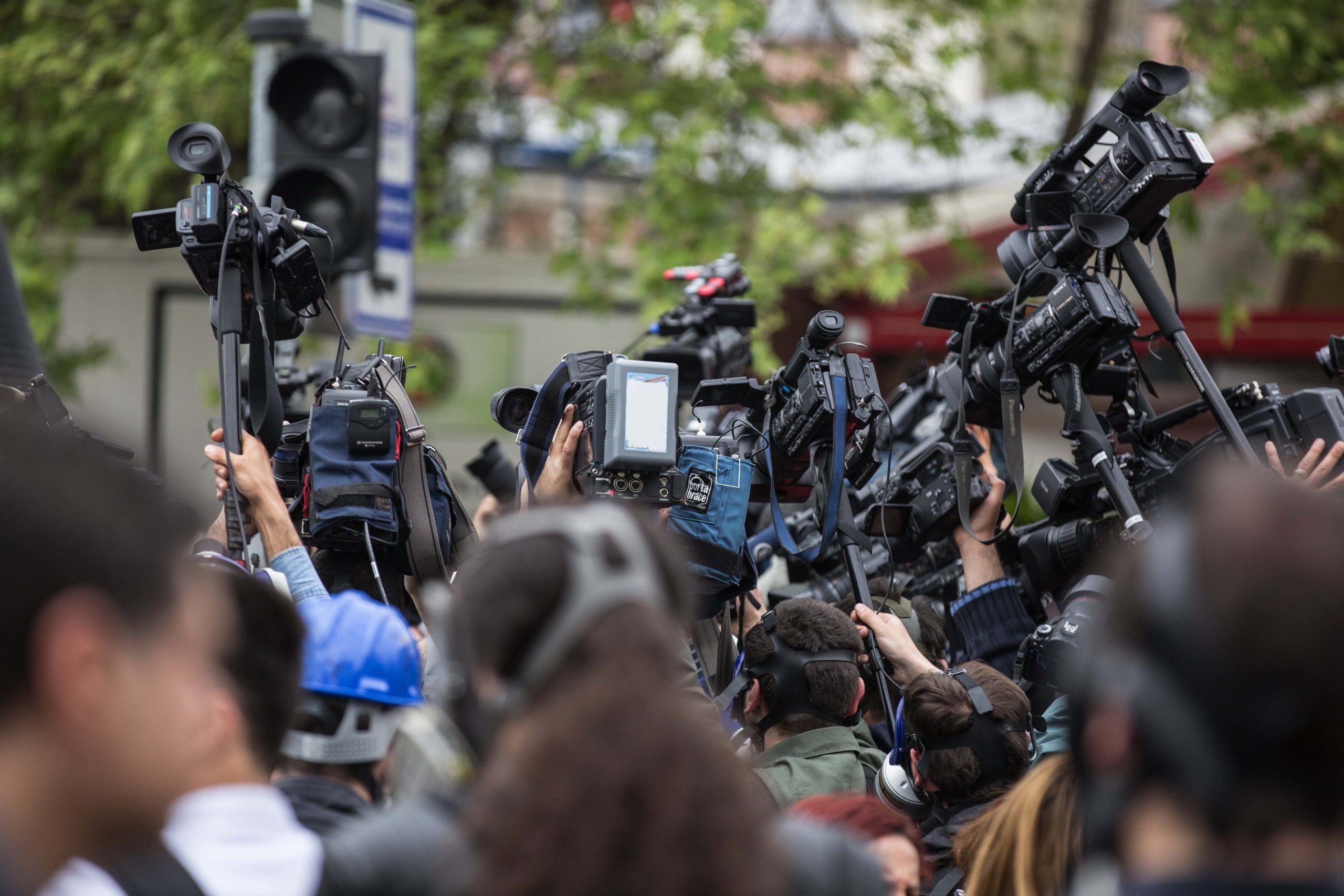
“Media Freedom and Pluralism in Europe 2014-2023” is a report produced by the ECR Party as part of a research project on trends in the European media sector.
In order to speak of a democratic state, we have to recognise that freedom of the press and pluralism are fundamental elements. When it comes to media pluralism, specified as the diversity of media content available to the general public, it is good to understand that for this to happen there must be an environment for a truly free press. Independent media institutions, in which journalists operate without fear of threats of aggression or pressure from the political environment, can provide diverse content in all areas of citizen interest. In order to have an independent press, freedom of expression and information must be protected and regulatory and supervisory mechanisms must be put in place so that media content is regulated to protect pluralism.
When we refer to freedom of expression and media pluralism, we must remember that in the countries of the old continent (as Europe is called), and particularly in the 27 EU states, there are some of the longest traditions and highest guarantees in the field of the right to free expression. This is why the media is seen as an area of activity that plays an essential role in the everyday life of the citizen. The most important role played by media institutions is to provide relevant, accurate and timely information, acting as an intermediary between the general public (the citizen) and state institutions. Among the roles of the media are monitoring government institutions, bringing to public attention abuses by politicians in power and, last but not least, the role of the media is to encourage civil engagement by circulating (news, reports, surveys) various ideas so that citizens are as well informed as possible to make informed choices.
“The ability of journalists to report freely on issues of public interest, is a crucial indicator of democracy,” Freedom House notes.
While many EU countries boast some of the strongest constitutional guarantees when it comes to freedom of expression, when it comes to countries outside the EU, it can be seen that significant efforts are being made to live up to these Western European standards and promote a pluralistic and free media landscape. Although challenges to press freedom across Europe have multiplied in the context of political change the presence of free media organisations has declined. According to UNESCO’s annual reports, it has been observed that press freedom and pluralism in European countries have seen a steady but decisive decline.
According to the report “Media Freedom and Pluralism in Europe 2014-2023”, which covers a ten-year period of analysis of the media, it can be seen that there are challenges to the democracies of many European countries. Thus, citing national security and the fight against terrorism, many European governments have introduced new laws raising questions about the free expression of the individual in balance with national interest. The Ukrainian conflict and the rise of Russian propaganda has prompted European governments to develop alternative news sources. The war that started almost two years ago has also raised questions about the safety of journalists on the one hand and the way the media delivers reliable (verified and credible) news on the other.
Populist parties and their election victories
Globalisation, the COVID-19 pandemic, the protracted migration crisis suffocating European states and economic uncertainty have led to the emergence of conservative, right-wing politics in recent times.
In a climate where the dissemination of information through online media has increased, a challenge to the independence and reliability of the information that the public reads has been born. Politicians have adopted an increasingly hostile attitude towards journalists, which has contributed to a rapid and steady decline in public trust in traditional media. In addition to this decline in trust, political turmoil in many European countries has been exploited by those in power to curtail journalists’ freedoms. There has been an increase in arbitrary arrests of journalists, financial pressure on media outlets and the development of a policy of surveillance of journalists by state institutions. It is therefore essential that traditional forms of media remain viable, reliable and, not least, free from political influence. Given the current challenges to media freedom and pluralism, the EU, through its initiatives, has become an increasingly active player in protecting media freedom and ensuring pluralism. The Freedom of the Press Act (EMFA) proposes a series of measures to promote a system aimed at better coordination of regulations and convergence between Member States. The Act aims at greater transparency of ownership (transparency of the shareholding of a media institution) and guarantees against state interference in a pluralistic media.
The report “Media Freedom and Pluralism in Europe 2014-2023” analyses the main threats to media freedom. These threats include: political influence in the media; ownership and control of media institutions and how this affects pluralism and freedom of expression; freedom and safety of journalists and the challenges journalists face for their freedom of expression. The report found that challenges to press freedom and pluralism are increasing in all European countries. Despite the reforms won in previous decades, this is not enough to prevent negative trends. It noted that violence against journalists has increased, as have threats, and governments have become hostile when criticism is levelled at them.

Since 2015, the effects of the economic downturn on the media market have steadily favoured mergers and acquisitions of traditional media outlets, often by governments or businessmen with vested interests in both politics and business. The purpose of these acquisitions has been nothing other than to try to foster political influence over media institutions by taking control of the information that is provided to the public. In most European countries, safeguards against political influence on the media are insufficient. In order to exert greater control over the editorial policies of media institutions, governments have in many cases offered financial incentives. On the other hand, the boards of directors of media institutions directly subordinate to governments have appointed people whose aim is to supervise journalistic activity and thus create a body of censorship and control.
Freedom and safety of journalism
Freedom of expression of thoughts, opinions or beliefs and freedom of creation of any kind, whether by speech, writing, images, sounds or other means of communication in public, are inviolable. This is enshrined as a fundamental right in most European constitutions, in the EU Charter of Fundamental Rights and in international agreements. EU Member States and a number of candidate countries have implemented a set of measures to protect freedom of expression, the right to information and the journalistic profession. In EU candidate countries, although a number of reforms have been introduced, implementation is still a major challenge and risks for journalists persist.
When it comes to the protection of freedom of expression and the journalistic profession, there is a general trend of a worsening situation in most of Europe. The last decade has seen a record number of murders of journalists. The political elite has become increasingly hostile to those who practise journalism, leading to an increase in the number of cases where access to information has been arbitrarily denied. At the same time, the increasing number of laws that more or less restrict media activity indicates a worrying trend of deteriorating freedom of expression and protection of journalists.
Freedom of expression enhanced by reforms
Countries such as Ukraine, Moldova and Georgia have adopted a series of reforms to improve freedom of expression for journalists. Since the election of a pro-EU government in 2009, Moldova has introduced several laws to protect journalists. At least at the declaratory level, Moldova offers strong guarantees for press freedom and freedom of expression. However, Moldova’s Commission for Exceptional Situations arbitrarily suspended the broadcasting licences of six media outlets for allegedly carrying out pro-Russian propaganda. More pluralistic coverage of events in Georgia was due to a lower level of hostility towards journalists. The progress achieved is under constant threat: high levels of corruption, little transparency in the implementation of reform, have pointed to a dangerous reversal of positive trends in these countries. In all the countries listed, EU enlargement policy has highlighted increased challenges to media freedom and pluralism. The media in Russian-occupied eastern Ukraine was marked by serious violations of freedom of expression (including censorship). Coverage of the conflict has become a permanent threat to journalistic freedom.
Turkey and some of the Western Balkan countries seem to be bucking the positive trend in reforming laws designed to protect freedom of expression. In Turkey, for example, invoking national security and defamation and insult laws, state institutions have arbitrarily arrested several journalists who dared to criticise the government or held different opinions. Reports indicate that 40 journalists are currently under arrest in Turkey after the 2016 coup attempt.
Record number of murders and attacks on journalists
According to UNESCO, from 2014 to date, more than 50 journalists have been killed in the countries covered by the ECR Party report “Media Freedom and Pluralism in Europe 2014-2023”. France was the country with the highest number of journalists killed globally and this came in the wake of the 2015 attack on the headquarters of Charlie Hebdo newspaper. In the last decade a record number of journalists have been killed while doing their investigative work. This shows that today the profession of journalism still faces great risks which leads to self-censorship or even giving up investigations when it comes to presenting sensitive issues such as corruption to the public.
A case in point is that of investigative journalist Daphne Caruana Galizia. The Maltese-born journalist was killed shortly after she revealed that several senior politicians had direct involvement in the Panama Papers scandal. Another journalist who lost his life is Jan Kuciak. He was found dead outside his home with his fiancée during a press investigation into corruption in the Fico administration, which had links to an Italian organised crime group. Cases in which journalists have been killed in the course of their work have attracted widespread public attention, both locally and internationally. Their deaths can be interpreted as Europe failing to protect its journalists and, consequently, the role of the press in a democratic society. Another aspect to be mentioned is that at European level, attacks and harassment of journalists by the public and state authorities are on the rise.
Hostility towards journalists is on the rise
Threats and attacks are the result of an increasingly hostile environment towards journalists. In several countries politicians have consistently used smear campaigns against journalists to delegitimise investigative work and criticism of the government. The delegitimisation of journalists has often been done by labelling them as “liars” and “enemies” or even “foreign agents”. This is a technique increasingly used by a number of liberal governments to evade public scrutiny. One example is Serbia. Here, pro-Vucic publications have been attacking independent journalists as spies working behind the government’s back with the EU to overthrow the government.
According to a recent study, the private sector is increasingly using legal means to intimidate journalists through so-called strategic lawsuits (SLAPPs). In most cases, SLAPPs consist of lengthy, costly and often baseless litigation used by financially powerful individuals with the aim of preventing journalists from carrying out their work and often depleting the financial resources of independent media journalists. In Europe, 34.2% of SLAPPs are directed against journalists, closely followed by media outlets (23%). In a top 2022 ranking, Malta, France, Croatia, Greece, Turkey and Georgia were the countries with the highest number of SLAPP cases registered. The European Commission has proposed a Directive against SLAPPs in the Union, with cross-border procedural safeguards to counter this trend. At the end of last year the EP and the Council of Ministers reached a provisional political agreement, signalling a step towards the adoption of the directive.
A balance must be struck between national security and freedom of expression
New laws, in the name of national security, restricting freedom of the press and therefore freedom of expression have been introduced in several European countries in the wake of terrorist attacks and the refugee crisis.
An example of this is France’s information law which has adversely affected the work of journalists. Although there is a recognition of the need to legally protect media sources, governments have put journalists under surveillance and forced them to reveal their sources, citing national security and the fight against terrorism. Russian propaganda has increased threats against the free media. In Ukraine, Lithuania, Latvia and Estonia governments have suspended and fined Russian broadcasters for inciting war. Ukraine has suspended more than 15 Russian-language channels and in Moldova, the Commission for Exceptional Situations has revoked the broadcasting licences of six news channels, citing the spread of disinformation. One cause for concern is the opaque way in which many of the channels have been shut down in these countries. Therefore, without proper oversight, “disinformation” can be used to suspend opposition media outlets. Moreover, if certain media channels are censored, the population may find itself unable to find alternative sources of information.

In terms of ownership, control and diversity of opinion, it has been observed that over the last decade, the concentration of media ownership has increased in Europe. The countries under consideration have shown medium to high concentration, with the four largest providers holding a considerable market share. Countries such as Portugal and Lithuania explicitly prohibit political parties from owning TV and radio stations or newspapers. In most countries safeguards against excessive ownership and control of the media by politicians, political parties or partisan groups are weak or non-existent. Where the press acts as a mouthpiece for the government, rather than being allowed to criticise it, the media loses its important role as a guardian of democracy. Most European countries now have formal requirements for disclosure of media ownership structures. These obligations often have limitations. Disclosure of the owner of the media institution is mandatory for the authorities but not for the public.
In conclusion, it can be said that media freedom and pluralism have declined in most European countries, which is extremely worrying. The COVID-19 pandemic, terrorist attacks and increased migration have prompted governments to rethink and adapt their legal frameworks. The EU is becoming increasingly proactive towards independent media outlets by promoting higher standards of media protection across the bloc. The European Press Freedom Act, proposed by the European Commission, aims to establish a framework with new rules and mechanisms to promote pluralism and media independence across the EU.
“Media Freedom and Pluralism in Europe 2014-2023” is a project carried out by the ECR Party and was partly funded by the European Parliament.



 Subscribe
Subscribe